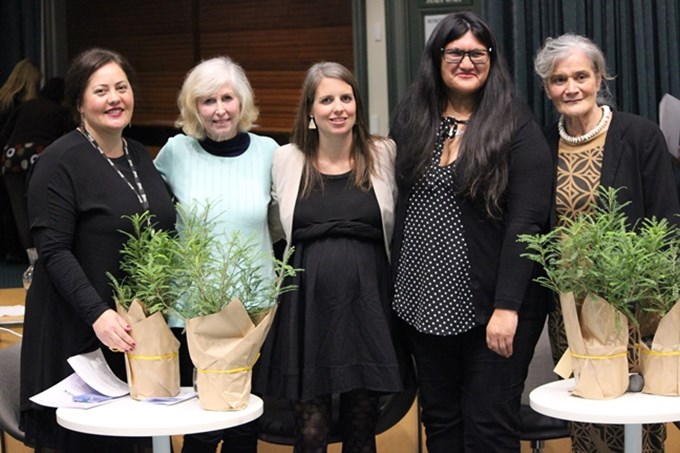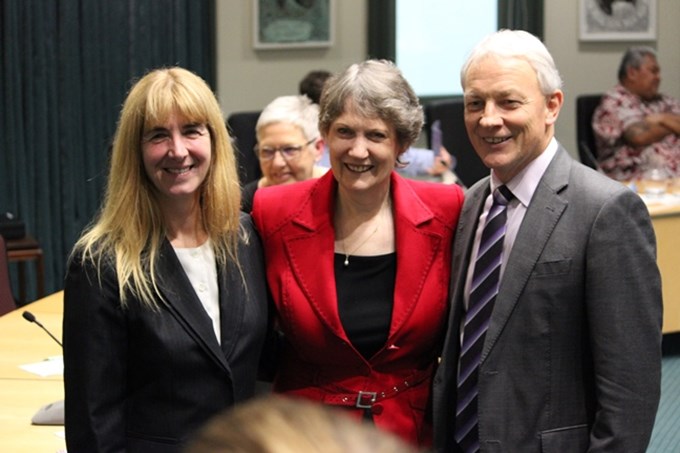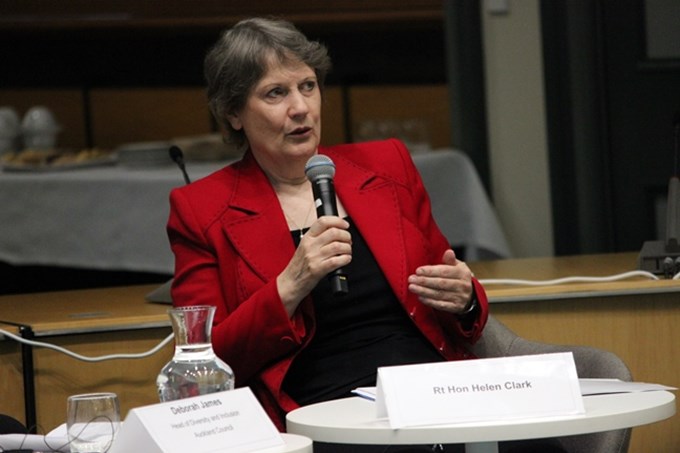Auckland Council’s Community Development and Safety Committee met on 5 July to discuss ongoing gender equality issues in New Zealand.
The council’s committee meeting comes a week before government and non-government organisations are due to appear before the United Nations Committee in Geneva to provide a progress update on New Zealand’s commitments to the Convention on the Elimination of Discrimination of Women (CEDAW).
New Zealand ratified the convention in 1985 and makes regular reports on the status of women’s rights.
Committee chair, Councillor Cathy Casey, says that while council’s support for gender equity issues is strongly expressed as part of its commitment to valuing diversity, fostering inclusion, belonging and participation for all Aucklanders, work is still needed to achieve gender equality.
“We still have a long way to go. Women are still paid less than men and there are fewer women in leadership roles,” says Councillor Casey.
“Women comprise 61 per cent of public servants but only 42 per cent of public sector chief executives are women. This statistic is worse in the private sector where only 19 per cent of directors of companies listed on the New Zealand Stock Exchange are female.”
Equal Employment Opportunities Commissioner, Dr Jackie Blue
Dr Jackie Blue, who will be travelling to the United Nations next week, spoke to the meeting about progressing human rights and issues of equity, particularly those that affect equal employment opportunities. She has a strong voice in support of the participation of women in society and is the Commission's lead on stopping violence against women.
Dr. Blue said that gender-based violence is a significant focus of the Human Rights Commission submission to CEDAW, and she will be requesting a cross-party accord for domestic violence strategies going forward.
A council report on gender issues states that Māori, Pasifika, migrant women, disabled women, older women, lesbians, bisexual and transgender women are those most likely to experience violence against women, most of which is not reported.
Councillor Casey says it is a national disgrace that New Zealand women experience the highest reported rate of intimate partner violence and the highest lifetime prevalence of sexual violence for any OECD country.
Sharing perspectives on gender issues
A panel discussion involving representatives from community organisations shared their thoughts on gender equality from the perspective of their communities.
Christine King from Pacific Women’s Watch congratulated council on moving towards implementing a living wage but challenged council to always put a ‘gender lens’ over decision making.
Tagaloatele Professor Peggy Fairbairn-Dunlop from P.A.C.F.I.C.A Women encouraged CEDAW to continue gathering data and measuring issues of gender equality, but also urged measurement of things that are done well by women.
“Why is it that we don’t count the things that Pacific are good at? We don’t seem to account for the strengths we have like cultural, creative and sporting strengths,” said Tagaloatele Professor Peggy Fairbairn-Dunlop.

“Crash through the glass ceiling!”
The Rt. Hon Helen Clark, former New Zealand prime minister and previous administrator of the United Nations Development Programme, also spoke at the meeting. Ms Clark talked to the meeting about the gender pay gaps and women in leadership roles.
“In my opinion, when there are positions of power being contested, you have to jostle to get in. You must make the case, you have to crash through the glass ceiling! Be prepared to step up and build the networks around you.”
Pay equity and leadership
In 2017 the gender pay gap in New Zealand was a 9.4 per cent average across all women, this is worse for Māori, Pasifika, Asian and women with disabilities.
Ms Clark says that while the gender pay gap is getting better and believes pay parity is doable, advocating for equal pay must remain a priority.
Council monitors gender pay parity across its workforce and has not identified significant differences in pay for male and female staff doing the same roles. Councillor Casey believes the primary gender issue for council relates to a lower percentage of women in senior leadership levels.
“Women make up 60 per cent of our council’s workforce but only 30 per cent of our senior leaders are women,” she says.
Ms Clark was asked how New Zealand can be a positive example for the rest of the world. She said that New Zealand is being noticed as an example of political participation by women.
“When I started in parliament in 1981, the percentage of women in parliament was under 10 per cent, it’s now at 38.7 per cent. With a push we could reach parity.”
Ms Clark also pointed to the recent pay parity policy implemented by New Zealand Football ensuring equal pay, prize money and advertising as a great example of New Zealand leading the way.
Deputy chair, Councillor Efeso Collins, says the meeting’s focus on gender equality was important to challenge the status-quo and continually work towards achieving gender equality in all areas – political, social, economic, and cultural.
The Community Development and Safety meeting was live-streamed and is available to view on Auckland Council Live.



